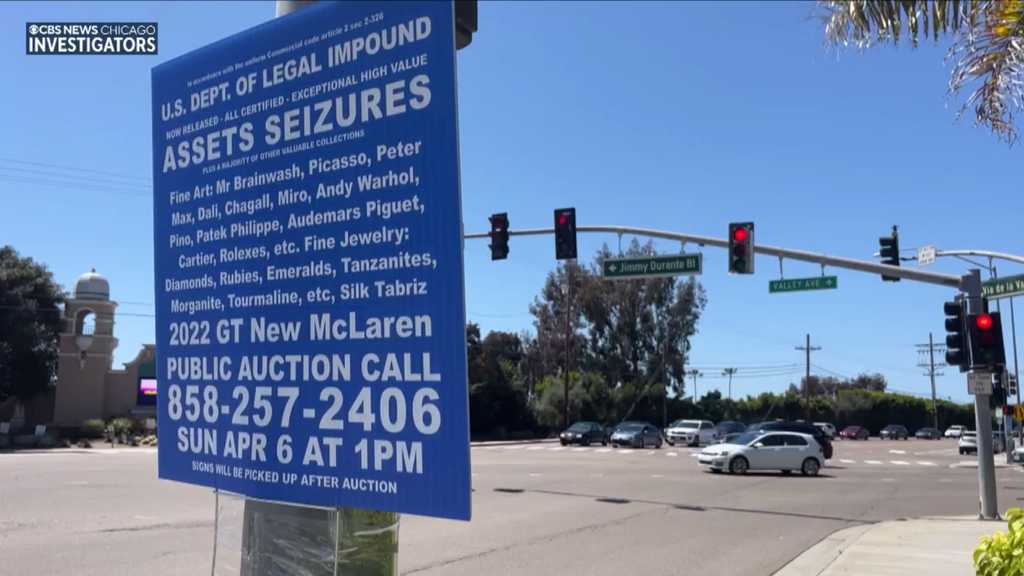
The Deception of Pop-Up Auctions
In recent months, two unsuspecting customers found themselves caught in a web of deception at pop-up auctions in different parts of the United States. One involved a luxury watch, and the other an artwork by a famous artist, both of which were falsely claimed to be worth far more than they actually were. These incidents highlight the dangers of unregulated auctions and the importance of due diligence when making high-value purchases.
A Luxury Watch for a Fraction of the Price
On a Sunday in early March 2025, a couple from suburban Cleveland came across a sign advertising a "Law Enforcement Seizure Auction." Intrigued by the list of items being sold, including a Blue McLaren, jewelry, and watches, they decided to investigate further. They called the number provided and were told the auction would take place at a Marriott in Warrensville Heights.
Upon arrival, the couple was greeted with a range of items on display, including a diamond-studded Rolex that caught their attention. The auctioneer shared a compelling story about the watch, claiming it had been purchased by a Wall Street investor for his wife and could be worth $55,000. The bidding started at $3,000, and within minutes, the price soared to $6,000. The husband added an extra $500, securing the watch for $6,500.
After the sale, the couple received an appraisal report stating the watch was valued at $19,200. They believed they had made a great deal, but later discoveries would reveal otherwise.
A Faux Andy Warhol Print
A month later, in Del Mar, California, Vartan Messier and his wife encountered a similar situation. They saw signs advertising "All Certified" items from the "U.S. Dept. of Legal Impound," which piqued their interest. They attended an auction at the Del Mar Hilton, where they found artwork, jewelry, and other items accompanied by certificates of authenticity and appraisals.
Messier spotted an Andy Warhol Superman silkscreen print, which he believed could be worth tens of thousands of dollars. He double-checked the authenticity and was assured everything was included. He bid $8,000 and eventually paid $10,005 after taxes and fees.
However, after reviewing reports from CBS News Chicago, which had previously exposed similar scams, Messier reached out to a Los Angeles gallery specializing in Warhol prints. The gallery representative confirmed the piece was not authentic, citing incorrect colors and positioning. He estimated the print's value at around $200.
Uncovering the Scam
Both customers discovered the truth too late. The Cleveland man filed a police report, and a jeweler who examined the watch noted several red flags, including mismatched parts, no gold in the band, and a fake certificate of authenticity. The watch appeared to be old, with multiple parts replaced over time, and the model numbers did not match those listed in the appraisal.
Similarly, the Warhol print turned out to be a counterfeit, and Messier struggled to get a refund. He eventually received the full amount back with help from the Delaware Better Business Bureau, but the Cleveland couple is still waiting for their refund.
The Broader Picture
The auctions were organized by a company tied to multiple business names, including U.S. Trustee Auctions. The auctioneer at both events was the same: Anwar Khan. Despite previous warnings and legal actions, the company continues to operate, raising concerns about accountability and consumer protection.
Taking Action
Experts like Chuck Bell from Consumer Reports emphasize the importance of consumers coming forward when they encounter fraud. “For every 10 people who experience a scam, maybe only one or two might file a complaint,” Bell said. “That’s one of the things that slows down accountability.”
Consumers are encouraged to file complaints with local Better Business Bureaus, state Attorneys General, and the Federal Trade Commission (FTC) if they suspect fraud. By speaking up, individuals can help drive changes in laws and regulations to better protect others from similar scams.
Resources for Consumers
- File a complaint with your local BBB.
- File a complaint with your state Attorney General.
- File a complaint with the Federal Trade Commission (FTC).
